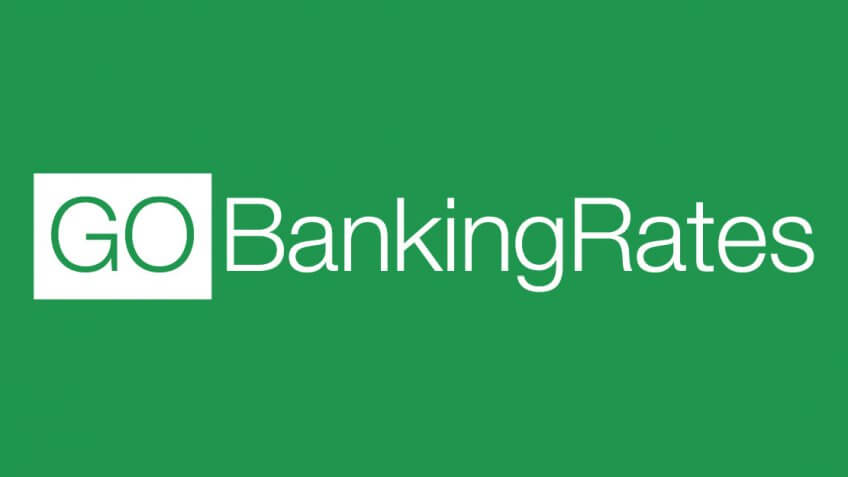PNC Bank Savings Account Interest Rates for April 2025

Commitment to Our Readers
GOBankingRates' editorial team is committed to bringing you unbiased reviews and information. We use data-driven methodologies to evaluate financial products and services - our reviews and ratings are not influenced by advertisers. You can read more about our editorial guidelines and our products and services review methodology.

20 Years
Helping You Live Richer

Reviewed
by Experts

Trusted by
Millions of Readers
If you’re looking for a trusted national bank that offers both physical branch access and modern online tools, PNC Bank might be worth considering. With multiple savings account options, including a competitive high-yield savings product, PNC gives you flexibility, whether you’re just getting started or working toward long-term goals.
But how do PNC’s savings account interest rates compare in April 2025? Here’s a breakdown of current rates, how they stack up against other banks and what you should know before opening an account.
What Is the Current PNC Savings Account Interest Rate?
PNC Bank offers different savings account options, and the interest rate — or annual percentage yield (APY) — varies depending on which account you open and how you use it.
- PNC Standard Savings Account: Earns a base APY with no minimum deposit requirement.
- PNC High Yield Savings℠ Account: Offers a more competitive APY, available only in select states.
- Relationship Rates: Earn a higher APY when you link your savings account to a PNC checking account and maintain a qualifying balance.
Rates can vary based on your location. Be sure to check the latest APY specific to your ZIP code using PNC’s online rate tool.
PNC Savings Account Rates: April 2025
| Account Type | APY (Up To) | Minimum Deposit |
|---|---|---|
| PNC Standard Savings | $1 | |
| PNC High Yield Savings℠ | $1 |
PNC Relationship Rates
By linking your Standard Savings account with an eligible PNC checking account, you can unlock “Relationship Rates.” If you maintain a balance of $2,500 or more, you may qualify for the highest APY tier. PNC Relationship Rates go up to if you maintain a balance of $2,500 or more.
Types of PNC Savings Accounts
PNC Bank offers two different savings accounts — the Standard Savings account and the High Yield Savings account, as well as the Virtual Wallet savings tool. Here’s a closer look:
Standard Savings Account
With the PNC Bank savings account interest rate, you can earn APY. It has no minimum deposit requirement and the minimum balance requirement to earn interest is just $1.
- Low entry barrier: $1 minimum to start earning interest.
- Monthly fee waived with qualifying activities (e.g., $300 minimum balance, account linking, age under 18, or automatic transfers).
High Yield Savings
This account earns APY and has no minimum balance requirement or monthly service charges.
- Higher APY than Standard Savings.
- No minimum balance requirement or monthly maintenance fees.
- Online-only and available in select states.
Virtual Wallet® with Savings Tools
PNC’s Virtual Wallet combines checking and savings in one platform, offering spending insights, goal tracking, and the potential to earn a bonus of up to $400. It includes:
- Basic Virtual Wallet
- Virtual Wallet with Performance Spend
- Virtual Wallet with Performance Select
To earn the highest bonus, you’ll need $5,000 in direct deposits and meet other criteria. You’ll also need to complete direct deposit transactions totaling up to $5,000 to your Spend account. By maintaining $5,000 in direct deposits, you can avoid the $25 monthly service fee.
Comparing PNC to Other Banks
PNC offers a generous APY with its savings accounts, but there are also competitors on the market with attractive APY rates and other benefits. Take a look at how the competition stacks up.
PNC vs. Ally Bank
The PNC Bank High Yield Savings option offers , which is a bit more than Ally Bank’s . Similarly, both banks don’t require extra account fees. Ally is an online-only option, but available throughout the nation, whereas PNC has branch access, and the high-yield savings option is limited to only a handful of states.
PNC vs. Capital One
Capital One has a great APY with its 360 Performance Savings, though it is lower than PNC’s offering. Capital One does have its Capital One Café that provides banking services as well as branch access, similar to PNC. There are no monthly fees or and no minimum balance is required.
PNC vs. Marcus by Goldman Sachs
Marcus by Goldman Sachs offers APY on its savings, which is a higher offering than the other two competitors. This high-yield savings account is available throughout the U.S., in comparison to PNC’s limited reach. You won’t have to pay any monthly service fees and there are no minimum deposit requirements at Marcus, similar to PNC.
SELECTED BANK
MOST COMPARABLE
MOST COMPARABLE
MOST COMPARABLE
Fees
Fees
Fees
Fees
$0 to $5 waivable monthly charge
$0
No monthly service fee
None
APY
APY
APY
APY
Up to
Min Opening
Min Opening
Min Opening
Min Opening
$0 to $25
$0
$0
$0
PNC Bank: Other Savings Options
If you want to grow your money in alternative ways, PNC offers CD accounts and money market accounts.
CD Accounts
PNC offers CDs in a variety of term lengths, from one month to 10 years. For all their CD accounts, they offer three APY tiers, depending on your balance. The highest APY offered is on balances of $25,000 or more.
Not only does PNC offer fixed-rate CDs, but it also has several promotional CDs from which to choose. Terms range from four months to 61 months. The APY is applied to any balance over the minimum deposit of $1.00 and will range from to , depending on the term and how much you deposit into the account. The highest APY rate applies only to the 4-month fixed term CD, and you must have at least $1,000 in your account.
- Terms from 1 month to 10 years.
- Three APY tiers based on balance.
- Promotional CDs are available with fixed terms and higher rates.
- Best rates require $25,000+ and a term of at least 4 months.
Premiere Money Market Account
You can also add the Premiere Money Market account to your Virtual Wallet. If you have a checking account with PNC, you could link them together and after meeting some transactional requirements, you may be able to qualify for Relationship Rates. This would get you a higher interest rate. Your APY tier will also depend on your balance and the type of checking account you have.
- No monthly fee with a qualifying balance or linked checking account.
- Higher yields with larger balances and account linking.
- Combine with Virtual Wallet for Relationship Rate perks.
PNC Bank Savings Rates Pros and Cons
Here are some pros and cons to consider before you open a savings account at PNC Bank.
Pros
- No minimum deposits
- No monthly service fees if you average at least a $300 monthly minimum balance, are under 18, link your savings account to a PNC checking account or have set up a monthly savings transfer
Cons
- Standard Savings has low APY
- $5 monthly service fee
Is a PNC Savings Account Right for You?
A PNC savings account is a solid choice if you:
- Already bank with PNC or want to bundle products.
- Live in a state eligible for the High Yield Savings account.
- Want the flexibility of in-branch support plus digital tools.
- Plan to maintain a balance that qualifies for higher rates.
If you’re chasing the absolute highest savings APY, online-only banks may offer slightly better rates–but at the cost of no in-person support.
Final Take to GO
PNC Bank delivers a reliable and flexible savings experience backed by a nationwide presence and digital convenience. While the standard APY may be on the lower end, the High Yield Savings option and Relationship Rates make it worth considering — especially if you’re already a PNC customer or prefer full-service banking.
Before opening an account, compare rates, check eligibility for bonus offers, and consider your overall banking needs.
FAQ
Here are answers to frequently asked questions about PNC savings account interest rates.- Is PNC a good bank for savings?
- Yes, PNC is FDIC-insured and offers two savings accounts -- the Standard Savings account and the High Yield Savings account which has an APY of 3.25%.
- Which bank gives 7% interest on a savings account?
- PNC Bank does offer various savings account rates, however, no PNC Bank accounts offer 7% interest.
- Which bank has the highest interest rate on savings accounts?
- Some of the highest savings account interest rates can currently be found at Bread Financial, BMO Alto and Bask Bank.
Melanie Grafil contributed to the reporting for this article.
Rates are subject to change; unless otherwise noted, rates are updated periodically. All other information on accounts is accurate as of April 8, 2025.
Editorial Note: This content is not provided by any entity covered in this article. Any opinions, analyses, reviews, ratings or recommendations expressed in this article are those of the author alone and have not been reviewed, approved or otherwise endorsed by any entity named in this article.
Our in-house research team and on-site financial experts work together to create content that’s accurate, impartial, and up to date. We fact-check every single statistic, quote and fact using trusted primary resources to make sure the information we provide is correct. You can learn more about GOBankingRates’ processes and standards in our editorial policy.
- PNC Bank "website"
- PNC Bank "High-Yield Savings Accounts"
- PNC Bank "Savings Account Rates"
- PNC Bank "PNC Virtual Wallet"
- PNC Bank "CDs"
- PNC Bank "Money Market Interest Rates"
 Written by
Written by  Edited by
Edited by 





























